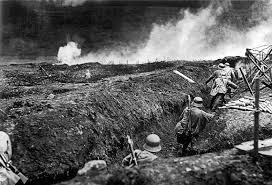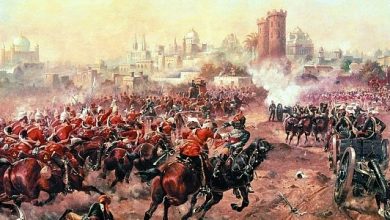First World War | Causes
Causes of World War One

The First World War (1914-1918) was a dangerous display of what the modern man was capable of. The War not only revealed the dangers of aggressive nationalism and the terror of modern weapons, it also directly led to the Second World War whose gruesome nature forever stained the pages of history. Many factors led to the First World War which were of political, military and economic in nature. Given below are the causes for the First World War :
Causes of First World War :
- Imperialism : Major European powers of the 18th century turned highly imperialistic in nature, expanding their empire across different parts of the world. Britain had its empire spread in India, France in Indo- China and the Dutch in Indonesia. Italy sought to gain new grounds in Africa and Germany was painfully aware of its shortcomings on this front as, as unlike other major European powers, it didn’t have an empire in other parts of the world.
- Colonialism : European nations formed colonies in many parts of the world from which they extracted natural resources and to which they supplied finished product. The colonies not only served as economic assets but also provided strategic military support. Naturally, the countries turned jealous of the colonial assets of their neighbors.
- Aggressive Nationalism : With increasing national consciousness among countries like Germany and Italy, other nations sought to boost their confidence by upholding their national supremacy. Kaiser Wilhelm II of Germany was a prime example of a ruler who vigorously advocated the supremacy of his country (Germany) over everybody else. The patriotic feelings soon took an unhealthy turn and the nations began seeing each other as absolute rivals.
- Competition in Trade and Industry : The Industrial revolution which led to massive scale of production and trade contributed the economic power of a nation. Intense economic competition and the rush to lay hands on resources and markets fed the already increasing tensions among nations to assert their supremacy.
- Armament Race : The development of military technology led to a massive arms race among European nations as every nation began vying for military might. Germany’s Army Law (1891) and Navy Law (1906) significantly increased its infantry and naval powers. France made Conscription compulsory and Russia increased its army size.
- Naval rivalry between Germany and Britain: Britain, which had so far virtually ruled the seas faced a stiff challenge from Germany whose naval powers increased significantly in the later half of the nineteenth century. Both sides began aggressively increasing the navy.
- Balkan Crisis : The Second Balkan War resulted the total breakdown of Balkan League which had formed a defence front against the rival Austro-Hungrian Empire. The Second Balkan War left Serbia, Russia’s only remaining ally vulnerable to the Austro- Hungarian Empire. Russia, following Austria’s threat to Serbia jumped in to save its ally which further led to Britain declaring war on Russia followed by France. Germany soon jumped in on the Austro-Hungarian side, declaring war on France and Britain which further deteriorated the situation and finally precipitated in World War I.
- Mutual Suspicion and the Role of Media : The prevalence of secret treaties among different nations contributed in creating an air of suspicion among nations which led to warmongering between countries. The newspapers and media of opposing nations ( in an attempt to capitalize on the volatility of the entire situation) engaged in blatant sensationalism, often portraying the other as unreasonable and deserving to be taught a lesson.
- Formation of Alliances : Europe had experienced formation of military and diplomatic alliances among nations due to growing threat from each other. France had signed the Dual Alliance with Austria in 1867 following the German occupation of Alsace and Lorraine. More significantly, Germany, Austria-Hungary and Italy formed the Triple Alliance in 1882. To counter this, England, France and Russia formed the Triple Entente in 1907. Thus, Europe was divided between two opposition rival groups which was to ultimately push Europe into the brink of First World War.
Immediate Cause of World War :
Assassination of Franz Ferdinand
June 28, 1914 : Franz Ferdinand, the Archduke of Austria along his wife Sophia were assassinated by Gavrilo Princip, a member of the ‘Black Hand’, a revolutionary organisation, at Sarajevo, the Capital of Serbia. This event later came to be known as the “Sarajevo Crisis”.
Austria held Serbia responsible for the assassination and issued an unacceptable ultimatum. Upon its rejection, Austria declared war against Serbia on June 28, 1914. Russia sided with Serbia whereas Germany supported Austria. France and Britain Declared war on Germany. Thus, the stage was set for the First World War, the most terrible war the world had ever seen.


